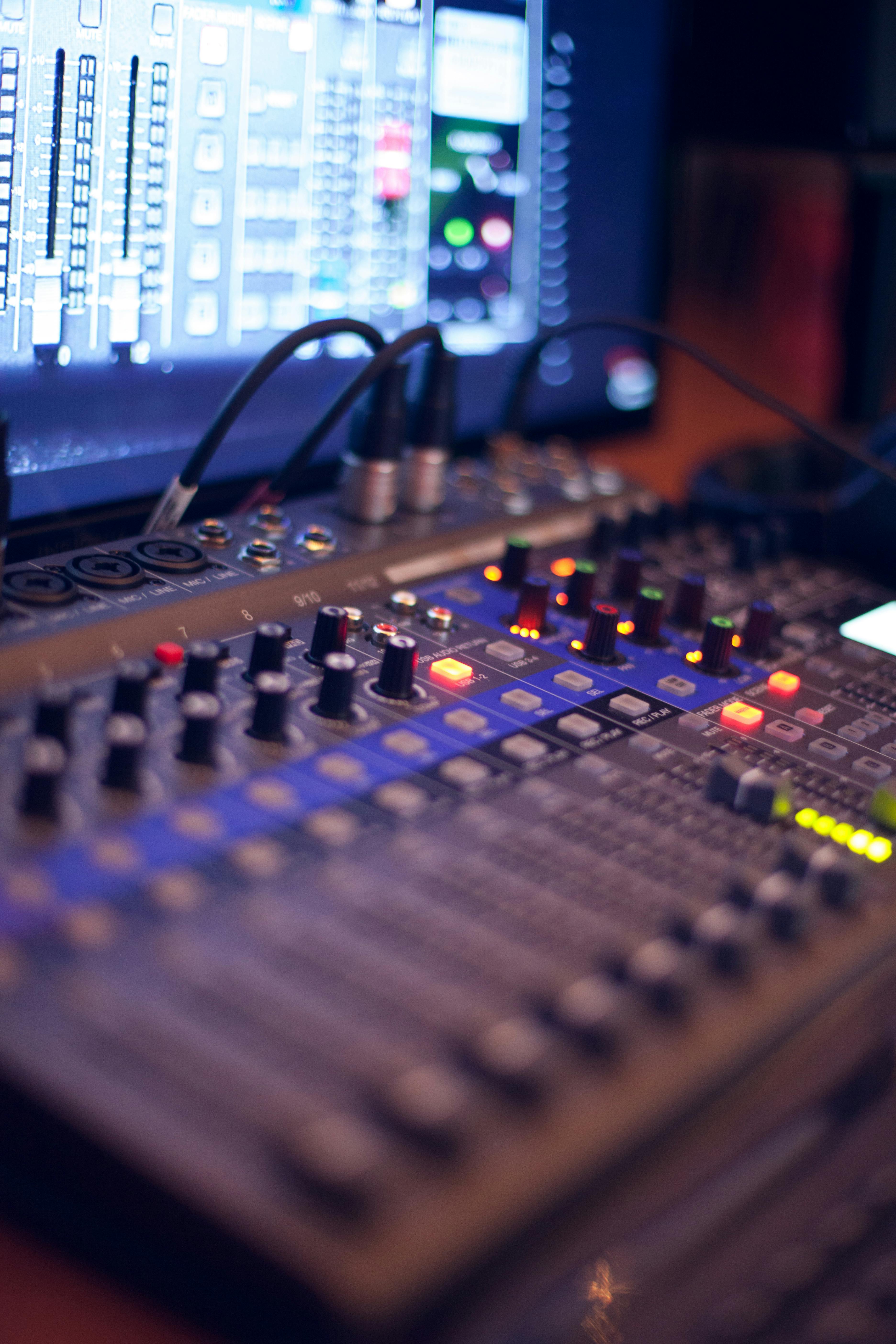Tags : ormekur kat ormekur kat håndkøb
id=”article-body” class=”row” section=”article-body”> Chris Monroe/CNET Amazon’s voice assistant, Alexa, is infiltrating your home, your beach trips and even your ride to work. Now that there are many ways to interact with Alexa — with the Tap, Echo, Echo Dot, Echo Look, Echo Show, Dash Wand and the Amazon Fire TV — you might find yourself talking to her more often.
 The list of commands is expanding rapidly, as is the number of third-party services and devices that Alexa officially (and unofficially) supports.
The list of commands is expanding rapidly, as is the number of third-party services and devices that Alexa officially (and unofficially) supports.
Here is the (almost) complete list of Amazon Alexa commands.
DO MORE WITH ALEXA
Get the best Amazon tips delivered to your inbox. It’s FREE!
Summoning Alexa
By default, Amazon’s connected speakers have the same wake word. All you have to do to queue up a request is say, “Alexa.” In the Amazon Alexa mobile application or at echo.amazon.com, you can change the wake word to either Amazon, Echo or Computer.
If you have an Amazon Tap, Dash Wand or the Amazon Fire TV voice remote, you’ll need to press a button to wake Alexa. Amazon updated the Tap with a hands-free mode that you must enable in the settings. The only wake word available to the Amazon Tap is Alexa.
Earlier this year, Amazon added a feature called Follow-Up Mode that makes it easier and faster to issue multiple commands to Alexa without having to keep repeating the wake word. When you enable the feature, Alexa will continue to listen for another command after it’s completed your first request. You can keep issuing more commands until you’re done or orm hos katte until you say “stop.”
Amazon has also built on this a multiple commands feature by allowing you to string two related commands into one. You can say something like, “Alexa, play folk music in Amazon at volume six,” or “Alexa, add bread, milk and eggs to my shopping list.”
Editors’ note: Originally published on April 13, 2016, this article is regularly updated to include new Alexa commands, features and information.
Tyler Lizenby/CNET Other places you can access Alexa
While the most obvious or natural way to use Alexa may be through an Echo speaker from Amazon or a third-party speaker, it’s not the only way you can call up Amazon’s digital assistant.
In fact, there are more and more ways to access Alexa being created all the time and you don’t even need any specialized devices. Here are some of the most prominent ways to use Alexa with the devices you already have:
The Alexa app on iOS and Android
The Amazon Shopping app
The Amazon Music app
Cortana on a Windows computer
Within the mobile apps, the wake word won’t work. Instead, you’ll have to look for the Alexa icon and tap that to queue up the assistant. Not all features — like reminders — work within the mobile apps either.
On an updated Windows computer, open Cortana and say, “Open Alexa.” After the initial connection is made, saying this will queue up Amazon’s assistant through Cortana.
Alexa Echo Auto connects allows you to connect your phone to Alexa in your car. Echo Auto is capable of carrying out many of the commands and features as your home device.
The complete list of Alexa commands
The list of Alexa commands is expansive and grows with every new service or device it supports. Alexa isn’t perfect, but it’s pretty great at understanding natural language, so you don’t always have to speak the commands exactly as you see them below. Many commands work when worded several different ways or even with words omitted.
More Alexa tips & how-tos
What products work with Amazon Echo?
What else can Alexa do?
Alexa tip: Wake up to any song on Spotify
When you consider the possible third-party commands through Skills, essentially the apps of Amazon’s Alexa, the list goes on even further. To learn what individual skills are capable of, visit the skill’s page from the Amazon Alexa app or alexa.amazon.com.
Here are all the native Alexa commands.
Now playing: Watch this: Basic Alexa tips and tricks 2:43 Basic commands
Ask for help: “Alexa, help.”
Have a conversation: “Alexa, let’s chat.”
Mute or unmute: “Alexa, mute” or, “Alexa, unmute.”
Stop or pause: “Alexa, stop” or, “Alexa, shut up.”
Change volume: “Alexa, set the volume to 5,” “Alexa, louder” or “Alexa, turn up/down the volume.”
Echo Show
The Echo Show and Echo Spot are the only Echo speakers with touchscreen displays. This means you can tell them to show you things.
Ask for what the Echo Show can display: “Alexa, what can you show me?”
Show your calendar: “Alexa, show my calendar.”
Show pictures: “Alexa, show my photos” or, “Alexa, show me pictures of cats.”
View your cameras or other rooms: “Alexa, show the living room camera.”
View movie trailers: “Alexa, show me the trailer for ‘It.'”
Movie showtimes: “Alexa, show me movie showtimes.”
View the forecast: “Alexa, show me the weekend forecast.”
Play YouTube videos: “Alexa, show me travel videos on YouTube.”
Display recipes: “Alexa, show me a slow cooker recipe from Allrecipes.”
View your Flash Briefing: “Alexa, play my video Flash Briefing.”
See your timers: “Alexa, show me my timers.”
Open a visual skill: “Alexa, open Uber.”
Fire TV and Fire TV Stick
You can now use compatible Echo devices (Echo, Echo Dot, Echo Look, Echo Show and Amazon Tap) to control your Fire TV and Fire TV Sticks.
Control Fire TV: “Alexa, [pause, play, resume, stop, fast-forward, rewind] on Fire TV.”
Search movies or TV: “Alexa, search for [movie to TV show title] on Fire TV” or “Alexa, find [movie or TV show title] on Fire TV.”
Find work by a certain actor: “Alexa, show me titles with [actor] on Fire TV.”
Open apps: “Alexa, open [app name] on Fire TV” or “Alexa, launch [app name] on Fire TV.”
Return home: “Alexa, return home.”
Sarah Tew/CNET Fire TV Edition televisions
Amazon also builds its Fire TV operating system into televisions like the Element EL4KAMZ17 series. All of the commands above work on those too, in addition to a few TV-specific commands below.
Turn on or off the TV: “Alexa, turn on Fire TV” or “Alexa, turn off Fire TV.”
Change the volume of Fire TV: “Alexa, set the volume to [level] on Fire TV” or “Alexa, turn [up/down] the volume on Fire TV.”
Mute Fire TV: “Alexa, [mute/unmute] Fire TV.”
Change the channel when watching an antenna: “Alexa, go to [channel or network name] on Fire TV.”
Change inputs: “Alexa, switch to PlayStation on Fire TV” or “Alexa, switch to HDMI 1 on Fire TV.”
Open antenna program guide: “Alexa, open TV guide on Fire TV.”
Media controls
Adjust audio settings: “Alexa, set the bass to four.”
Play music: “Alexa, play some music.”
Play music on other (or multiple) Alexa devices: “Alexa, play [artist] in the living room” or “Alexa, play [artist] everywhere.”
Queue specific song or artist: “Alexa, play music by [artist].”
Play a song based on context: “Alexa, play the latest Avett Brothers album” or “Alexa, play that song that goes ‘Gotta gotta be down, because I want it all.'”
Play music based on a theme: “Alexa, play baby-making music” or “Alexa, play rock music for working.”
Play the song of the day: “Alexa, play the song of the day.”
Play Spotify music: “Alexa, play on Spotify.”
Play Pandora station: “Alexa, play [artist] station on Pandora.”
Play a radio station: “Alexa, play [radio station] on TuneIn.”
Play an audiobook: “Alexa, play [title] on Audible,” “Alexa, read [title]” or “Alexa, play the book, [title].”
Resume the last played audiobook: “Alexa, resume my book.”
Skip audiobook chapters: “Alexa, next chapter” or “Alexa, previous chapter.”
Play a bedtime story: “Alexa, read a bedtime story to [name].”
Listen to Alexa read you a Kindle book: “Alexa, read me my Kindle book.”
Set a sleep timer: “Alexa set a sleep timer for 45 minutes” or “Alexa, stop playing in 45 minutes.”
Song information: “Alexa, what’s playing?”
Music controls: “Alexa, play” or “Alexa, next.”
Control music playback on another Alexa speaker: “Alexa, stop in the kitchen” or “Alexa, next in the office.”
Restart song: “Alexa, restart.”
Add a song to your Prime Music library: “Alexa, add this song.”
Create a playlist in Amazon Music: “Alexa, create a new playlist,” or “Alexa, create a ‘Friday Chill’ playlist.”
Add a song to a playlist in Amazon Music: “Alexa, add this song to my playlist,” or “Alexa, add this to my playlist.”
Like or dislike a song on Pandora and iHeartRadio: “Alexa, I like this song” or “Alexa, thumbs down.”
Start Amazon Music Unlimited trial: “Alexa, start my free trial of Amazon Music Unlimited.”
“Alexa, wake me up every day at 8 am to music” allows users to set their mornings off right with music from Pandora, Spotify, TuneIn, iHeartRadio and Vevo.
Time and date
Set an alarm: “Alexa, set an alarm for 7 a.m.” or “Alexa, wake me up at 7 in the morning.”
Set a music alarm: “Alexa, wake me up to [artist, song, genre, playlist or album] at 8 a.m.,” “Alexa, set an alarm to Band of Horses” or “Alexa, wake me up to Kiss FM on TuneIn.”
Set a repeating alarm: “Alexa, set a repeating alarm for weekdays at 7 a.m.”
Set a timer: “Alexa, timer” or “Alexa, set a timer for 15 minutes.”
Set a music timer: “Alexa, set a 15-minute timer to ‘My Heart will Go On'”
Create a named timer: “Alexa, set a pizza timer for 20 minutes.”
Set multiple timers: “Alexa, set a second timer for 5 minutes.”
Check timer status: “Alexa, how much time is left on the pizza timer?” or “Alexa, what are my timers?”
Cancel a timer: “Alexa, cancel the pizza timer” or “Alexa, cancel the 15-minute timer.”
Ask the time: “Alexa, what time is it?”
Ask the date: “Alexa, what’s the date?”
Ask when the next alarm is: “Alexa, when’s my next alarm?”
Cancel an alarm: “Alexa, cancel my alarm for 2 p.m.”
Snooze alarm: “Alexa, snooze.”
Check dates: “Alexa, when is [holiday] this year?”
Tyler Lizenby/CNET Calls and messaging
In May 2017, Amazon introduced calling and messaging between users of its Echo speakers. Later, it added another feature, called Drop In, that lets users call different Echo devices throughout their home, intercom style. (You can also call and message from the Alexa app, but no commands are needed.)
This year, Amazon has added new features like Announcements and the ability to send text messages with your voice.
Call another Echo user: “Alexa, call [name].”
Answer an incoming call: “Alexa, answer the call” or “Alexa, answer.”
Hang up: “Alexa, hang up” or “Alexa, end the call.”
Message another Echo user: “Alexa, message [name]” or “Alexa, send [name] a message.”
Play messages: “Alexa, play messages.”
Send an SMS: “Alexa, send an SMS to [contact name],” or “Alexa, send an SMS.”
Use Drop In on one of your own devices: “Alexa, drop in on the living room.”
Drop In on another user (requires the other user to allow you to Drop In anytime): “Alexa, drop in on [name].”
Turn off the video during an ongoing call (only works with Echo Show): “Alexa, turn video off.”
Make an announcement: “Alexa, announce it’s dinner time,” “Alexa, broadcast it’s time to go,” or “Alexa, tell everyone good night.”
Number check: “Alexa, open phone number check” → “tell me about 301-555-5555” or “please provide information about 301-555-5555.”
Purchasing
Reorder essentials from Amazon: “Alexa, buy more deodorant” or “Alexa, reorder deodorant.”
Track packages from Amazon: “Alexa, where’s my stuff?” or “Alexa, track my order.”
Order an Amazon Alexa device: “Alexa, order an Echo,” “Alexa, order an Echo Dot,” or “Alexa, order an Amazon Tap.”
Add an item to your cart: “Alexa, add garbage bags to my cart.”
Order an Uber or Lyft with their skills: “Alexa, ask Uber to request a ride” or, “Alexa, ask Lyft for a ride.”
While listening to music in Amazon Music: “Alexa, buy this song” or “Alexa, buy this album.”
Find new music to purchase: “Alexa, shop for new music by [artist].”
Purchase a song or album from an artist: “Alexa, buy [song or album] by [artist].”
Ask about deals: “Alexa, what are your deals?”
For good recommendations on products, Alexa has you covered. Just say “Alexa, find me a good smartphone on Amazon?” and it will find products based on Amazon customer ratings and reviews.
Notifications
To turn on notifications, open the Alexa app or go to alexa.amazon.com and go to Settings > Notifications > Shopping Notifications and move the toggle to the on position. Then your Echo speakers will light up yellow when you have new notifications.
Check missed notifications: “Alexa, what did I miss?,” “Alexa, read my notifications” or “Alexa, what are my notifications?”
Navigate through notifications: “Alexa, next” or, “Alexa, previous.”
Delete notifications: “Alexa, delete all of my notifications.”
To-do and shopping lists
Add task to to-do list: “Alexa, add ‘go to the grocery store’ to my to-do list” or “Alexa, I need to make an appointment with the doctor.”
Create a new to-do item: “Alexa, create a to-do.”
Check calendar events: “Alexa, what’s on my calendar for tomorrow?”
Add an event to a calendar: “Alexa, add [event] to my calendar for [day] at [time]” or “Alexa, add an event to my calendar.”
Move a calendar event: “Alexa, move my meeting from 12:00 to 3:00.”
Create a shopping list: “Alexa, add eggs to my shopping list” or “Alexa, I need to buy laundry detergent.”
Check your shopping list: “Alexa, what’s on my shopping list?”
Create a reminder: “Alexa, reminder” or “Alexa, remind me to check the oven in 5 minutes.”
Check on existing reminders: “Alexa, what are my reminders this weekend?” or “Alexa, what reminders do I have tomorrow?”
Donate money to your favorite charity by saying “Alexa, make a donation to American Cancer Institute INC.” or any number of approved charities.
Want to check your American Express balance? Just say “Alexa, open Amex,” and look at your account.
News and weather
Ask for your Flash Briefing: “Alexa, what’s my Flash Briefing?”
Add music news to your Flash Briefing: “Alexa, enable Today in Music.”
Check headlines: “Alexa, what’s in the news?”
Check weather: “Alexa, what’s the weather like?” or “Alexa, will it rain today?”. You can also ask “Alexa, will I need an umbrella today?”
Get a weather forecast: “Alexa, what’s the weather going to be like this weekend?
Get traffic information: “Alexa, what’s my commute look like?” or “Alexa, what’s traffic like?”
 payday loans personal loans It is worth pursuing that a lot of people are well aware to the fact that it is worthwhile looking throughout the offer and choosing the most engaging financial conditions. The customer does not even need to own a banking account. And it is known that in business oftentimes you have to act quickly and instinctively, especially when a chance to sign a contract with another service provider, some kind of agreement favorable to us, nevertheless we need the specific hype pounds for it and that we do not have the perfect time to wait. In addition , bank loan periods are usually combined as one loan time, which allows the customer to approach his economic future extra conveniently. Often practiced by debtors, acquiring loans to repay previous payments often ends in tragedy. This is noticeable.
payday loans personal loans It is worth pursuing that a lot of people are well aware to the fact that it is worthwhile looking throughout the offer and choosing the most engaging financial conditions. The customer does not even need to own a banking account. And it is known that in business oftentimes you have to act quickly and instinctively, especially when a chance to sign a contract with another service provider, some kind of agreement favorable to us, nevertheless we need the specific hype pounds for it and that we do not have the perfect time to wait. In addition , bank loan periods are usually combined as one loan time, which allows the customer to approach his economic future extra conveniently. Often practiced by debtors, acquiring loans to repay previous payments often ends in tragedy. This is noticeable.

 The list of commands is expanding rapidly, as is the number of third-party services and devices that Alexa officially (and unofficially) supports.
The list of commands is expanding rapidly, as is the number of third-party services and devices that Alexa officially (and unofficially) supports. 

 This may make it easier to to really feel tense free the place it wouldn’t take much time to get the work achieved. You also need to look on the service quality so as to make sure that you just get maximum benefits that might really feel good of your self getting hold of the ultimate one with none causes to fret at all. • Search for affordable companies: Another essential aspect that you just want to verify is to have a have a look at their prices so as to remain your self on a much profitable place. • Is it actually price efficient? You need to make positive that you find price effective providers that might assist you to in a finest way to search out 100% satisfied providers out of it. It’s essential to find out about safe and environment friendly pest control products to manage the problem. Thus, it’s important to know the effective strategies on deciding on a pest control products in order for you to handle this job. I do a damn good job at maintaining the house clean (I’ve a maid come over once per week to clean). If you’re into natural gardening, then beneficial nematodes could be a very good possibility for pest control. In the event you attempt to do the pest control your self, it’s possible you’ll not understand how or how a lot chemical is required.
This may make it easier to to really feel tense free the place it wouldn’t take much time to get the work achieved. You also need to look on the service quality so as to make sure that you just get maximum benefits that might really feel good of your self getting hold of the ultimate one with none causes to fret at all. • Search for affordable companies: Another essential aspect that you just want to verify is to have a have a look at their prices so as to remain your self on a much profitable place. • Is it actually price efficient? You need to make positive that you find price effective providers that might assist you to in a finest way to search out 100% satisfied providers out of it. It’s essential to find out about safe and environment friendly pest control products to manage the problem. Thus, it’s important to know the effective strategies on deciding on a pest control products in order for you to handle this job. I do a damn good job at maintaining the house clean (I’ve a maid come over once per week to clean). If you’re into natural gardening, then beneficial nematodes could be a very good possibility for pest control. In the event you attempt to do the pest control your self, it’s possible you’ll not understand how or how a lot chemical is required.





 Farmers use plastic sheets as mulch to cowl 50-70% of the soil and permits them to make use of drip irrigation programs to have higher control over soil nutrients and moisture. Plasticulture is the usage of plastic mulch in agriculture. Pollutants from agriculture have an enormous effect on water quality. Soil degradation is the decline in soil high quality that can be a results of many components, particularly from agriculture. Common attributes of soil degradation will be salting, waterlogging, compaction, pesticide contamination, decline in soil structure quality, lack of fertility, modifications in soil acidity, alkalinity, salinity, and erosion. This physiological response to extend JA production has been implicated in the ubiquitination of jasmonate ZIM domains (JAZ) proteins, which inhibit JA signaling, resulting in their degradation and a subsequent improve in JA activated defense genes. The interplay results in a crosstalk between their respective hormone signalling pathways which can either induce or antagonize another restructuring genes equipment to extend tolerance of defense reactions. However, if the soil is under irrigated, it provides poor soil salinity control which ends up in elevated soil salinity with consequent buildup of toxic salts on soil surface in areas with high evaporation. Detection of these signals in contaminated cells results in an activation of effector-triggered immunity (ETI), a kind of innate immune response.
Farmers use plastic sheets as mulch to cowl 50-70% of the soil and permits them to make use of drip irrigation programs to have higher control over soil nutrients and moisture. Plasticulture is the usage of plastic mulch in agriculture. Pollutants from agriculture have an enormous effect on water quality. Soil degradation is the decline in soil high quality that can be a results of many components, particularly from agriculture. Common attributes of soil degradation will be salting, waterlogging, compaction, pesticide contamination, decline in soil structure quality, lack of fertility, modifications in soil acidity, alkalinity, salinity, and erosion. This physiological response to extend JA production has been implicated in the ubiquitination of jasmonate ZIM domains (JAZ) proteins, which inhibit JA signaling, resulting in their degradation and a subsequent improve in JA activated defense genes. The interplay results in a crosstalk between their respective hormone signalling pathways which can either induce or antagonize another restructuring genes equipment to extend tolerance of defense reactions. However, if the soil is under irrigated, it provides poor soil salinity control which ends up in elevated soil salinity with consequent buildup of toxic salts on soil surface in areas with high evaporation. Detection of these signals in contaminated cells results in an activation of effector-triggered immunity (ETI), a kind of innate immune response. Claude James Hayes, Pest Operator, Montgomeryshire, Ministry of Agriculture, Adelaide City Council. Claude James Hayes, Chairman, Mary Pearce, JP, these days Alderman, Leeds City Council. Winchester City Council sees pest control as a technique of being profitable – however time will Rentokil at Leeds City Council is currently in the final phases of re-tendering. Initially the sort of work (home environments) and the sheer volume of requests for service, proved to be a problem and Rentokil struggled to cope. Rentokil is the global chief in pest control, delivering expert and reliable companies to business and personal customers in over eighty international locations worldwide. Last month, state officials fined General Services and the LAPD after uncovering a rodent infestation and other unsanitary situations on the agency’s Central Division station in skid row. The pest thrives in conditions and places that are unhygienic. Upon getting identified and corrected the conducive circumstances then you’ll be able to implement a proper pest control therapy program. Pest Control Expert . Pest Expert Formula ‘B’ strong rat poison, is an industrial strength rodenticide now accredited for novice use.
Claude James Hayes, Pest Operator, Montgomeryshire, Ministry of Agriculture, Adelaide City Council. Claude James Hayes, Chairman, Mary Pearce, JP, these days Alderman, Leeds City Council. Winchester City Council sees pest control as a technique of being profitable – however time will Rentokil at Leeds City Council is currently in the final phases of re-tendering. Initially the sort of work (home environments) and the sheer volume of requests for service, proved to be a problem and Rentokil struggled to cope. Rentokil is the global chief in pest control, delivering expert and reliable companies to business and personal customers in over eighty international locations worldwide. Last month, state officials fined General Services and the LAPD after uncovering a rodent infestation and other unsanitary situations on the agency’s Central Division station in skid row. The pest thrives in conditions and places that are unhygienic. Upon getting identified and corrected the conducive circumstances then you’ll be able to implement a proper pest control therapy program. Pest Control Expert . Pest Expert Formula ‘B’ strong rat poison, is an industrial strength rodenticide now accredited for novice use.